Technology for Exploration and Exploitation of Oil and Gas
We at COPPE are firmly engaged in training human resources and developing research aimed at enabling the exploration and exploitation of oil and gas. Since the signature of the first collaboration agreement between Petrobras and the Federal University of Rio de Janeiro in 1977, we have operated in several areas of interest to the O&G sector, especially offshore activities.
In recent decades, the discovery of deep-water oil and gas reserves has intensified the collaboration between COPPE and Petrobras in new engineering disciplines associated with oil and gas production. The following are the three main ways with which the results of these research and development activities have been transferred to society: (1) Training human resources; (2) Producing and publishing scientific work (including the organization of international congresses, including two editions of the OMAE – Offshore Mechanics and Arctic Engineering conference, in 2001 and 2012); and (3) Carrying out consultancy, research, and development projects. In 2024 we celebrate the 21-year anniversary of the installation of the largest ocean tank in the world, designed and built by COPPE.
In this context, our master’s and doctoral courses in the interdisciplinary area of Oil and Gas aim to contribute to the training of human resources for this vital industry, especially as it has been experiencing a increasingly pronounced development in recent years with the production of oil from the Pre-Salt layer.
These courses also offer a broad and up-to-date scientific view on the fundamentals and methods in technological development for consciously exploring and producing oil and gas. They address different lines of research (as indicated in the Table below), integrating professors and researchers from many Programs and Laboratories at COPPE, while also being associated with the Human Resources Program of the Brazilian Agency for Petroleum (PRH/ANP).
Lines of Research
| Lines of Research | Participating programs |
| Subsea Engineering | Ocean Engineering Civil Engineering |
| Offshore Systems and Structures | Civil Engineering Ocean Engineering |
| Geoacoustics, Seismic Wave Propagation, and Ocean Acoustics | Civil Engineering Ocean Engineering |
| Structural Integrity in the Oil and Gas Industry | Metallurgical and Materials Engineering Civil Engineering Ocean Engineering |
| Materials for the Oil and Gas Industry | Metallurgical and Materials Engineering Civil Engineering Ocean Engineering |
| Dynamic Positioning, Subsea Robotics, Control and Automation Systems | Electrical Engineering Ocean Engineering Mechanical Engineering |
| Radar Remote Sensing | Civil Engineering |
| Petroleum Industry-Oriented Computational Systems | Civil Engineering Mechanical Engineering |
| Offshore Floating Systems | Ocean Engineering Civil Engineering |
| Petroleum Systems | Civil Engineering |
Participating programs
| Participating programs | Fields of Study | Representatives |
| Civil Engineering (PEC) | Oil and Gas | Prof. Breno Pinheiro Jacob |
| Ocean Engineering (PENO) | Naval Engineering | Prof. Murilo Augusto Vaz |
| Electrical Engineering (PEE) | Control, Automation, and Robotics | Prof. Liu Hsu |
| Metallurgical and Materials Engineering (PEMM) | Physical Metallurgy and Mechanical Properties, Welding and Non-Destructive Testing, Corrosion, Advanced Ceramics, Thin Films and Surfaces | Prof. Célio Albano da Costa Neto |
| Mechanical Engineering | Design, Manufacturing, and Robotics; Solid Mechanics and Materials Integrity | Prof. Lavinia Maria Sanábio Alves Borges |
Coordinator of the Interdisciplinary Area for Oil and Gas: Prof. Breno Pinheiro Jacob – Civil Engineering Program (breno@coc.ufrj.br)
Vice Coordinator: Prof. Murilo Augusto Vaz – Ocean Engineering Program (murilo@peno.coppe.ufrj.br)
Candidate Profile
Candidates must have a degree in exact sciences (engineering or a related field).
